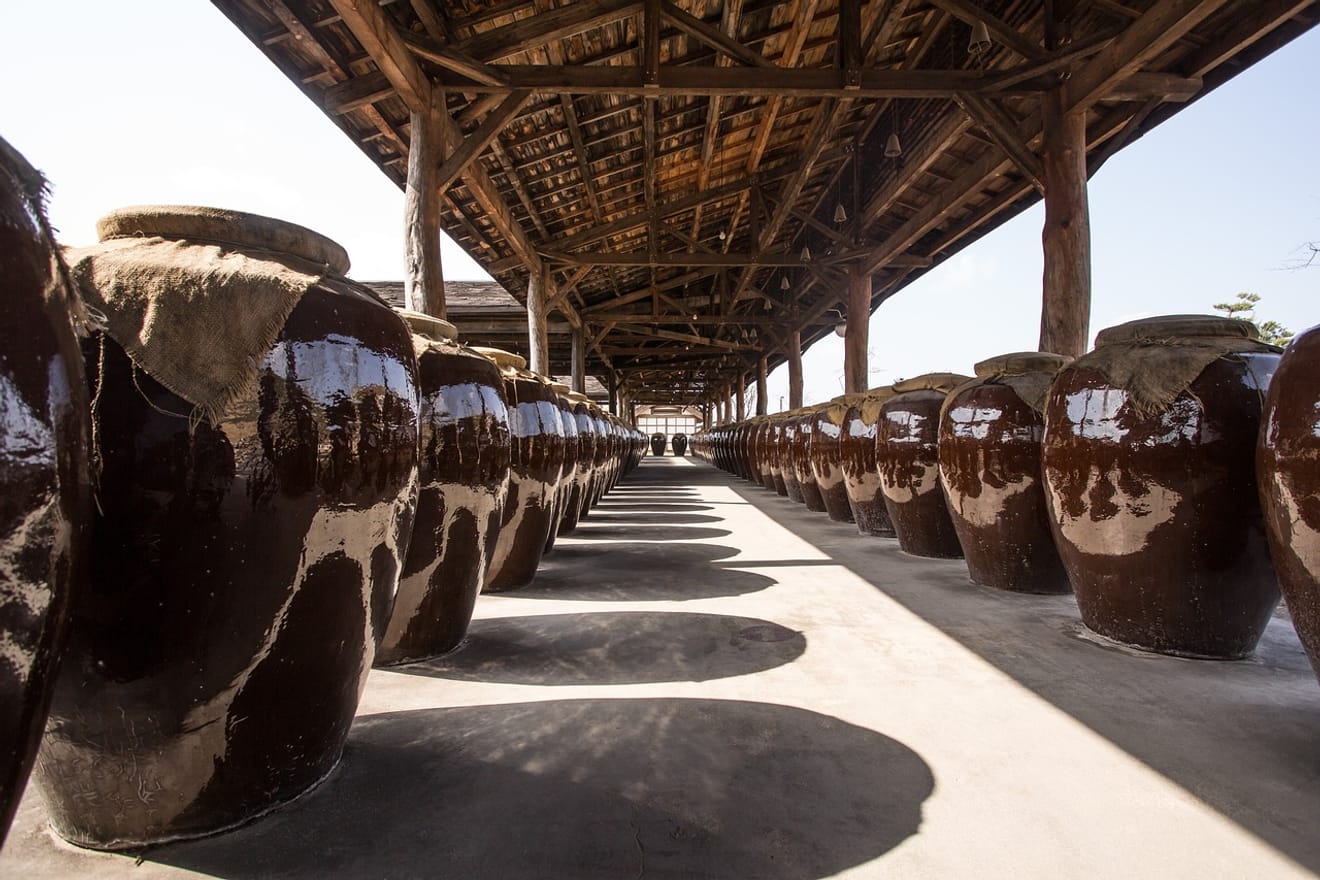Subject
- #Cheongju
- #Korean Traditional Liquor
- #Yakju
Created: 2024-02-01
Created: 2024-02-01 10:08

Source: Pixabay
Hello! Today, we're going to learn about cheongju, one of Korea's traditional liquors. Cheongju is a type of liquor made from grains like rice, barley, wheat, and sorghum. It's made by fermenting these grains with nuruk (a type of yeast starter) and then filtering the mixture to create a clear liquid. It's characterized by being clearer and cleaner than takju (cloudy liquor) and is traditionally brewed using traditional methods. It was primarily enjoyed by the upper class, making it a high-end brewed liquor. Remember how we mentioned that takju was a liquor for the common people? Cheongju is the opposite.
Did you know that all the liquors currently distributed in Korea under the name 'cheongju' are actually Japanese-style cheongju (sake)? This goes back to the Japanese colonial period. During the Joseon Dynasty, families used to brew their own liquor for ancestral rites and ceremonies. Among these, cheongju, being a refined and clear liquor, was widely brewed in every household. However, due to the Japanese liquor tax law implemented during the colonial era, home brewing (gayangju) was prohibited. People had no choice but to purchase liquor produced in factories. Furthermore, Korean liquor categories were simplified into takju, yakju, soju, and honsungju, and Japanese liquor, including cheongju, was introduced onto the tables of ancestral rites and ceremonies. The liquor we used to call cheongju was not classified as cheongju under the Japanese liquor tax law, hence, it was categorized as yakju. As a result, the traditional practice of brewing cheongju in every household disappeared.
The Japanese liquor tax law remains unchanged in Korea to this day. Therefore, liquor classified as cheongju can be considered as Japanese-style cheongju, or sake. So, the products I'm going to introduce today are classified as yakju under the liquor tax law, but they are made using traditional Korean methods of making cheongju.

Source: Gukseundang Homepage
First, let me introduce you to Kooksoondang's Yedam. It's described as 'purely fermented ancestral rite liquor, brewed with respect and care'. It's a dedicated liquor for ancestral rites and ceremonies, and it's used in ceremonies like the Jongmyo Jerye (UNESCO-designated Intangible Cultural Heritage) and the Joseon royal tomb ceremonies. Unlike traditional cheongju, it doesn't contain cheap distilled spirits, making it free of a greasy taste. The flavor of Korean liquor is enhanced, making it ideal for the whole family to enjoy after the ancestral rites.

Source: Geumbokju Homepage
Let me introduce you to GIMFOKJU's Hwarang. It uses 100% domestically produced glutinous rice and its own traditionally produced nuruk as a fermenting agent. It's described as a premium Korean traditional liquor, meticulously crafted through long-term, low-temperature fermentation and aging. Since glutinous rice is the main ingredient, it has a subtly sweet taste, which is balanced by a slight acidity that develops later. It goes well with Korean cuisine, so I highly recommend trying it.

Source: Home-sul.com (Neurinmaeul Yakju 700ml 19,900 KRW)
Neurinmaeul Yakju is a yakju brewed in the style of Bae Sangmyun Brewery, adapted to modern times. It's a smooth and refreshing liquor made by low-temperature aging of carefully filtered makgeolli (cloudy rice wine). It boasts a delightful balance of fresh acidity upfront and a subtle sweetness that lingers afterward. The rich flavor of rice leaves a pleasant aftertaste. If you're curious about a cheongju with a more pronounced acidity than sweetness, this is the one to try.
Today, we explored Korean traditional cheongju. How was it? Now that you know about Korean-style cheongju, why not try one of the recommended products? We'll be back with a post on distilled liquors next time. Thank you for reading! :)
Comments0